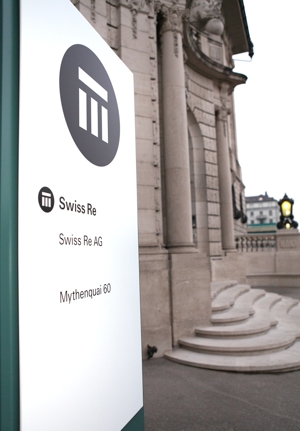Swiss Re’s Group Chief Risk Officer (CRO), Patrick Raaflaub, warned re/insurers to take a proactive stance to prepare for emerging risks, after the reinsurance giant released its 2017 SONAR report with insights on top risks set to threaten society and shape demands on the re/insurance world in coming years.
 Raaflaub said; “Ignoring emerging risks is not an option, neither for political decision-makers, the insurance industry, nor society as a whole.”
Raaflaub said; “Ignoring emerging risks is not an option, neither for political decision-makers, the insurance industry, nor society as a whole.”
As an industry that protects against uncertainty, re/insurers competitive advantage depends on timely foresight and innovative adaptation of cover and policy offers to match future market demands – this, in turn, helps preempt future societal threats and build a safer, more stable world.
Swiss Re’s 2017 SONAR report illuminates emerging risks with the greatest potential to shake global industries and societies in the next couple of years.
The number one emerging threat identified is rising protective regulation which undermines international corporations’ business models and reduces market access, and this is followed up with increased regulatory fragmentation “undermining re/insurers’ ability to support economic activity” through efficiently pooling risks.
The return of inflation poses the third top risk, Swiss Re said; “After years of low inflation and even fears of deflation, we see signs of headline price increases here and there. Inflation can affect insurers’ profitability, in particular on long-term liabilities (life, casualty). It can also have an adverse impact on asset management.”
The Internet of Things (IoT) has brought massive opportunities, but risks that are just as huge to match, and with the business world still lagging behind in protection against its potential pitfalls, accumulative cyber-risk was identified in the SONAR report as an overarching theme of the emerging risks landscape.
As cloud services grow exponentially, adding data-sets and services, an ever-increasing web of interrelated risks is formed which a cyber-attack or power blackout could transform into a “perfect storm,” with massive consequences for businesses and societies alike.
Climate change has long been touted as one of the biggest black clouds emerging on the global horizon, set to impact re/insurers on multiple levels; the 2017 SONAR report has confirmed water scarcity as a top concern of the next three plus years.
“While the U.S. Southwest is in an on-going water crisis, similar situations can be found today and in the future around the world – from Southern Europe and the Mediterranean to Africa, parts of Asia and Latin America.
“The risks range from wildfires, competition for water among the energy and agricultural sectors to mass migration and wider conflict potentials,” said Swiss Re.
And as global warming throws the natural environment’s balance off-skelter, Swiss Re warns “underestimated infectious diseases” will appear, “the question is not whether deadly infectious diseases will appear, but when and how society is prepared to cope with them. In an extreme scenario, each epidemic or pandemic has high relevance for life and health insurance and the financial markets.”
The challenge of keeping up with emerging threats is a constant within an industry already being shaken with disruptive technologies and new and increased competition, however, as Raaflaub notes, disciplined risk-taking thrives in a culture of pro-active and pre-emptive risk management – which can be created through “sharing knowledge through a proactive risk dialogue across stakeholders.
He highlighted that participating in this proactive dialogue is a vital step, not only within the re/insurance community, but “to help society as a whole to become more resilient,” adding “the earlier we adapt to these changes, the better prepared we will be.”
To take strategic decisions, Swiss Re said, “the industry needs to understand the macro trends and the risk landscape, and the impact they have on the re/insurance industry,” as it’s the “web of interdependent macro trends” that creates the risks of tomorrow.


